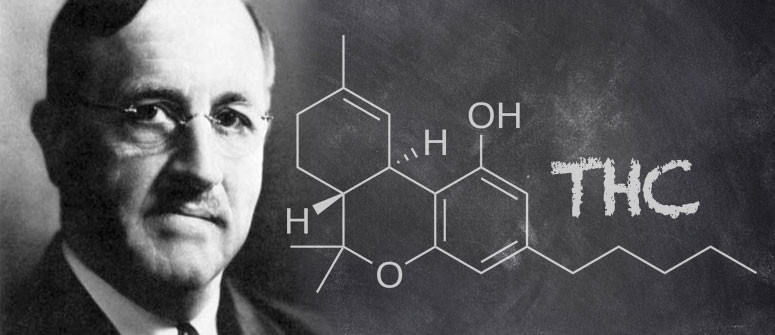Who really discovered thc?

Are you reading this thinking you already know that Raphael Mechoulam discovered THC in the 1960s? Well, newsflash: It seems certain authorities and researchers knew about THC as early as the 1940s.
Most people reading this believe that THC was discovered by Raphael Mechoulam in 1964 at Hebrew University, Israel. And we don’t blame you; after all, that’s what most of the literature on cannabis will tell you. However, THC was actually first isolated in the 1940s by US chemist Roger Adams.[1]
ROGER ADAMS, THE FIRST TO ISOLATE THC FROM CANNABIS
In 1930, Harry J. Anslinger (formerly the head of the US Department of Prohibition) became the commissioner of the Federal Bureau of Narcotics. Just 7 years later, cannabis became officially illegal under the Marihuana Tax Act of 1937.
Following the decision to criminalize cannabis, Anslinger organized investigations designed to better understand the plant. One of the key goals of these investigations was to identify and study the chemical (or chemicals) that gave the plant its “mind-altering” and “dangerous” effects. The man charged with this task was Siegfried Loewe, a chemist employed by the FBN.
Loewe eventually passed the task on to his friend Roger Adams. Throughout the 1940s, Adams conducted around 20 different experiments on cannabis and hemp. It was during these early experiments that Adams isolated THC and identified it as the main psychoactive compound in cannabis. He also isolated other cannabinoids (including CBN and CBD) and even developed a system for measuring the potency of THC (appropriately named the “Adams scale”). Researchers still use this system today.
WHAT HAPPENED TO ADAMS’ FINDINGS?
In the 1940s, New York Mayor Fiorello H. La Guardia commissioned a report on cannabis.[2] La Guardia was openly against cannabis prohibition. The report, commonly referred to as the La Guardia report, argued that smoking cannabis was harmless, which went directly against Anslinger and his “Reefer Madness” campaign.
The report obviously outraged Anslinger, who dismissed it and labelled it unscientific. But read through the report and you’ll notice a line thanking Roger Adams for supplying some of the cannabis extracts used in the study.
Some research suggests that the US government continued its own secret study into cannabis and THC throughout the ‘50s and ‘60s. Some of this research incriminates the US Office of Strategic Services for testing the feasibility of using psychoactive compounds (among them THC, mescaline, and more) on Prisoners of War. The goal here was to lower the inhibitions of the prisoners and get them to leak information to their interrogators. Remember that opening scene from Pineapple Express?
According to some sources, the authors of these works ended up likening the effects of cannabis to those of alcohol, with small amounts producing feelings of euphoria and relaxation, while large doses produce lethargy.[3]
WHAT ABOUT MECHOULAM’S BREAKTHROUGH RESEARCH FROM THE 1960s?
We obviously don’t want to denounce Mechoulam’s findings. He is often referred to as one of the top cannabis researchers in the world, and rightfully so. Mechoulam’s research has helped us uncover many of the “mysteries” surrounding cannabis. It seems, however, that Mechoulam’s findings were nothing new to the US government.
.jpg)
.jpg)

.jpg)
